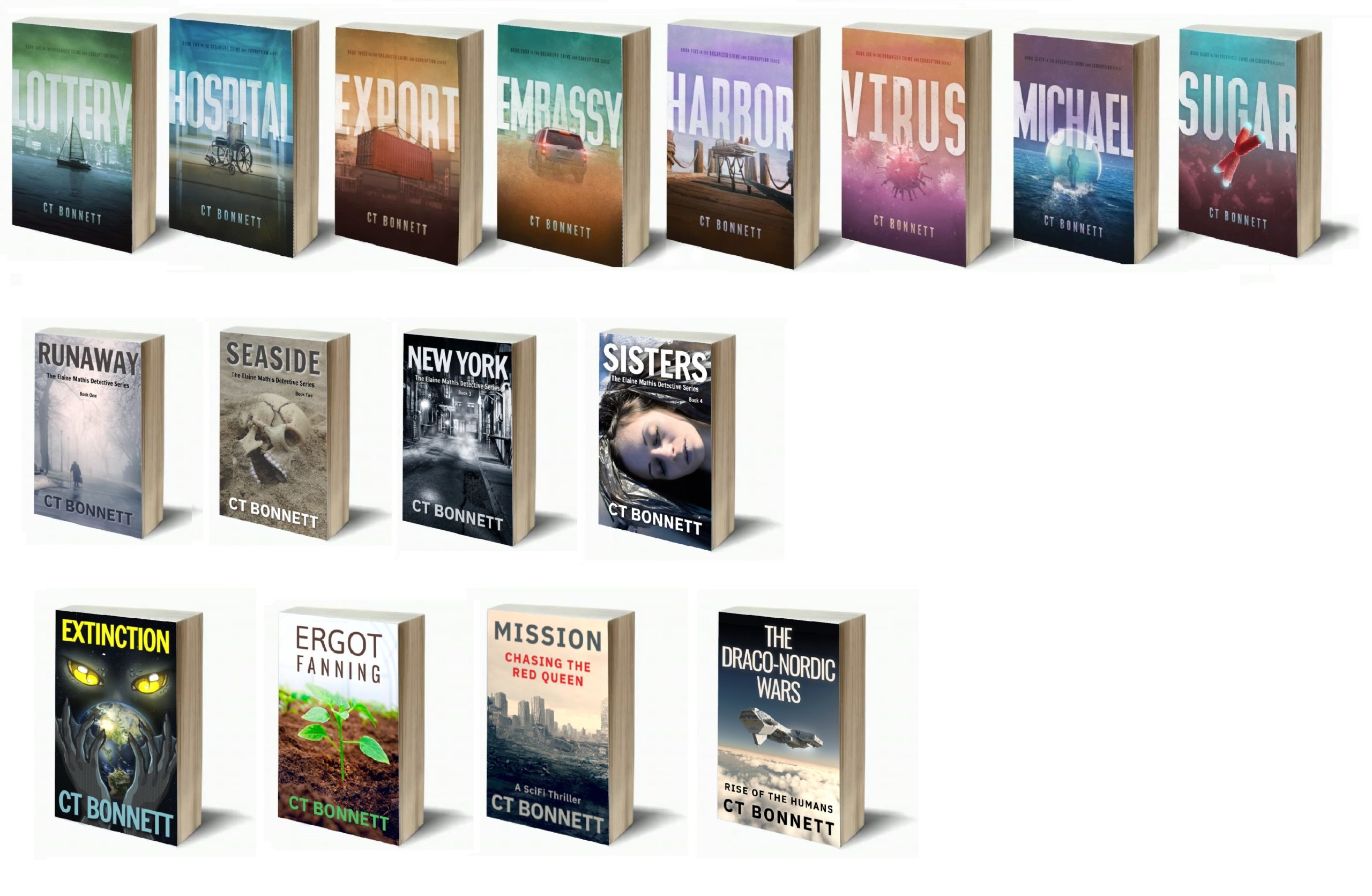
If you envision writing a series, you should consider that at the beginning. In my humble opinion, it’s easier to end the first novel as a stand-alone than to extend a single novel into a series, but that doesn’t mean you can’t do either.
When planning a series, the first novel must have a conclusion, but the characters live on for the next adventure; that framework must be in your mind from the start. For example, I wrote the last book in my Organized Crime and Corruption series after the first, and the series went on for eight books. I updated it as I went, but I knew how the series would end, whether three books or fifteen.
Stand-Alone Novels versus a Series
A novel is a fictional story where the word count exceeds 40 thousand and could reach 150,000. The name “novel” means fiction. You would never say “fictional novel”. A series is two or more novels or novellas (a short novel) that contain the same theme and characters. Stand-alone novels are typically longer than series novels, but there are no set rules.
Serialized versus Formula
In a serialized series, the first novel leads to the second as the plot is carried forward along with the backstory of the main characters. There are unresolved issues in book one that may carry forward several books. The formula is where the characters reappear in the same roles, but the plotline is completely independent. Detective series are almost always formula type.
Both my series are formula-based, but there are jokes and comments that the reader will not understand if they didn’t read the prior books. It’s a series either way. No matter the type of series, the backstory isn’t repeated. I’ve had people purchase the eighth book in my Organized Crime and Corruption Series before the other seven, and I know they won’t enjoy it as much because certain events play out that only make sense if you know the whole series. Usually, the last book in your series is like that. All of the unresolved issues come to a head, and a major event takes place to make the next book in the series impossible.

Genre
Depending on the genre you’re writing, a series may be almost mandatory. SciFi & fantasy appears to be on this path, but I’ve written four stand-alone SciFi novels. I have avoided the imposition of trends by being self-published. I don’t have to conform, so I don’t, but remember, trends change. By the time you read this stand-alone, SciFi epics may be all the rage. That would be good because I presently sent one to the editors.
Benefits of a Series
Why write a series? I generally like to read a series, and I tend to write what I like. My first books as a kid were the Hardy Boys series.
If you’re having covers created by a graphics artist, they will usually give you a price break because they can use the same template. However, when working as a writer and publisher, you want to have the same cover scheme for a series. Win-Win.
Many readers like a series for the same reason you may like to write it. Your brain likes familiarity. If you hear the same song enough, your brain will start to like the tune. Record companies know this, and it’s why you hear a certain song everywhere, then nowhere.
Sales are often generated for the entire series. As mentioned, if someone likes the first book, they will often buy the second, third, etc.
It’s less costly to advertise a series because you’re only advertising the lead book. Make sure the prospective buyer knows it’s the first of a series.
You can lower the price of the first book as a “loss leader”. If you’re offering it for $0.99, a reader may give you a chance as a new author.
The Not So Bad News
If the series doesn’t sell, you have sunk a lot of time into no returns. But. what if you wrote ten stand-alone and not of them sold? If you’re going to write ten books, why not write a series?
If the first book is a stinker, it will kill the rest of your sales; so make sure it’s not.
Why Not Write a Series?
If you’re a new author, meaning no name recognition, would you rather present ten stand-alone novels or a ten-novel series to a new reader? If you reply, “That depends on what the reader wants.”
Very true, but ten of anything is better than one. The point is, write and publish like an insane person.